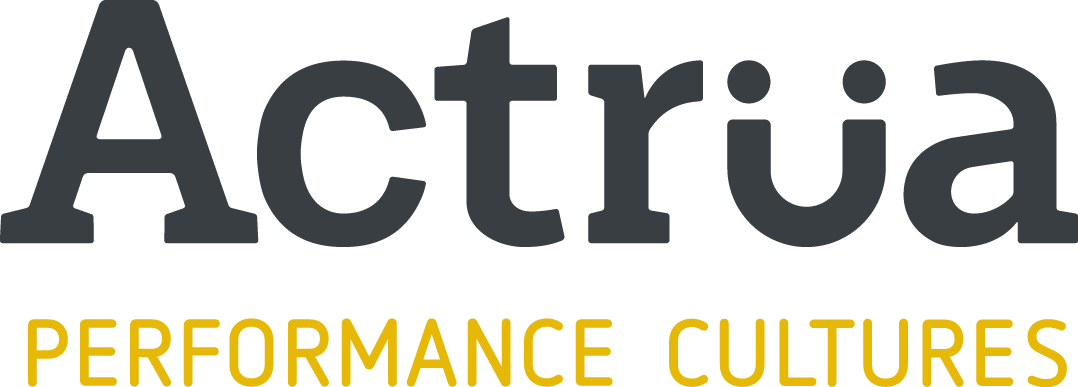As 2017 draws to a close, you may be starting to turn your mind to how you can best set up your organisation for success in 2018. If that is the case, there is a good chance that the growth and development of your current and future leaders will be high on the list.
Just as great leaders come in all shapes and sizes, so too does leadership development. One size does not fit all. Think about how, where, and when you have developed your approach to leadership. It will have been refined and influenced over many, many years. Probably starting in the school playground and perhaps even before that. There will have been trials, tribulations, and a few tears along the way. You may have had some great role models, and some pretty terrible ones too. The point is that leadership development is multi-faceted.
You sometimes hear it said that leadership development programs don’t work. Perhaps what we should be saying is that poorly designed or implemented leadership development programs don’t work. Of course, they don’t. But on the flipside, and one of the great benefits of being in this line of work, is that we get to be part of some great leadership stories. Let’s celebrate that success.
In this article, we would like to share five ideas that you may choose to use as leadership resolutions for your organisation in 2018.
#1 – Start with Self
Leadership is a privilege. No person has a given right to lead others. Sure, we have different jobs and role titles. However, true leadership is not about that. True leadership is about connecting with others. It is about caring and engaging with authenticity.
To be a truly successful leader, first and foremost you need to want to be a leader. Because leadership is not easy work, it comes with challenges and stress. Yes, it can be very rewarding too, that is for sure. But if the right values and motives are not in place to establish a strong leadership foundation, then the result will be a pretty shaky leadership base.
Self-awareness and a growth mindset are just two fundamental leadership attributes. This is a great starting point for new and emerging leaders.
#2 – Leader-Led Development
You know the saying, “Give a man a fish and he eats for a day, teach him how to fish and he eats forever.” Well, it is a perfect analogy for leader-led development. It involves working with the leaders in the business to coach and develop others. It is a truly sustainable approach to building a culture of performance. One of the main features is that if you have senior executives teaching junior managers about leadership, then it is incumbent on them to not only know their stuff, but to be role modelling it too. That is how you move a culture forward, by creating a wave of energy.
This is not a “quick-hit” approach, take an injection and the job is done. As a matter of fact, leadership development is never about that in any case. Building the coaching and facilitation skills of your business leaders to support the growth of others requires a conscious strategy and specific development programs. It requires an investment of time and commitment. Hopefully your leaders will jump at the opportunity to grow and support the next generation. If you find some of them saying they are too busy to develop others, maybe we should start to question what their role is?
#3 – The Power of Peer Learning
Peer learning is potentially the largest untapped source of development available within an organisation. What makes a champion team? One thing for sure is that it is not just about the coach or manager. In a true champion team all team member play a role in coaching each other. There are many coaches, not just one, as everyone has a coaching role to contribute. They support each other’s performance and growth, yet they also push each other and hold each other accountable for results.
A well-designed leadership program recognises this and it begins well before the opening workshop. It begins with the selection process. Who is selected to attend the program and why? Too often, great peer groups are held back by people who don’t want to be there. Leadership programs are not remedial programs, particularly when the issues are related to attitude and behaviour. Put a group of high performing, motivated, enthusiastic learners together and you will immediately feel the energy. It is an exciting thing. Give them some new ideas and get out of their way, because they will run you over. That is how leaders grow – together.
There is also a pretty neat facilitation technique available called Peer Coaching Circles. In a nutshell, each member of the Circle brings a current work challenge to the group. The peers are then engaged to understand the challenge and to offer solutions. The benefits are enormous. Real work, real challenges, real outcomes, and, ultimately, real development. Peer Coaching Circles are very effective as an integrated element within a development program, or they can be used as a stand-alone approach. The Peer Groups that can benefit are endless – Emerging Leaders, Female Leaders, Young Professionals, Middle Managers, Senior Executives, and Functional Specialists just to name a few.
It would be remiss here to not mention that Actrua have some very talented facilitators who can support Peer Coaching Circles in your workplace 😊.
#4 – A Coaching Culture
Coaching, as we know, is not new and has been around for a long time. But it really has come of age in the modern workplace. Doing more with less, time pressures and budget constraints mean it is getting more difficult to commit to leadership development programs. Coaching can be targeted, just-in-time, and delivered in or near the workplace. It is an ideal individual development solution for leaders, junior or senior, who are developing or may even already be performing at a good level. Why stop at good, and how about moving from good to great. A common mistake is thinking that you need to focus on weaknesses for development, but there is a lot to be gained by developing one’s strengths and leveraging them even further. Makes a lot of sense.
Just as we discussed in the Leader-Led section, there may be an opportunity to build the internal coaching capability within your business. It is an honour to be asked to coach others and your leaders should welcome the opportunity to grow and develop their coaching skills, whilst building individual and organisational capability.
It is opportune to share a fantastic case study of a current Actrua client. They are so invested in creating a coaching culture that they are taking Line Managers out of their normal roles for six months, so that they can build their coaching skills whilst coaching Supervisors / Team Leaders. They are now up to the third cohort of managers, the first and second cohorts have now returned to their normal duties. The performance outcomes have been far-reaching, with performance improvements for both Supervisors and Managers. Significant productivity and safety performance outcomes have also been achieved. This is a great example of a coaching culture and leader-led development in action.
#5 – Focus on the Future
Who are the future leaders in your organisation? They may not be in leadership roles today and may in fact not even be aspiring to a leadership role. Perhaps a place to start is Personal or Self Development. As mentioned above, self-awareness and a learning mindset are great leadership traits, but they are not exclusive to leadership. Follow-ship is just as important as leadership to team performance and in the workplace of today, high performing teams are essential for success.
I think we are all aware of the age-old problem of promoting our best technician into a leadership role. Even the best companies are guilty of it. Sometimes it works, but a lot of times it does not. The result is an average leader, lots of stress, and team performance suffers. A program that Actrua partnered with a client to deliver was designed to address these issues. The program educated aspiring leaders about the challenges of leadership and developed their skills in advance. When promoted, they already had a head start. But there was also an additional benefit associated with this approach. Some participants had the courage to self-select and make an informed decision that a leadership role was not for them. What an awesome outcome and a win-win for sure.
As the world around us continues to change, our leadership and development practices need to evolve too. However, there are also many fundamentals of leadership that remain and it is essentially the context and environment we need to adapt to. Skills and behaviours such as collaboration, working across networks, dealing with change and values based leadership are more important today than ever before.
We wish you a happy and safe New Year and hope that these ideas inspire some great resolutions for 2018.







